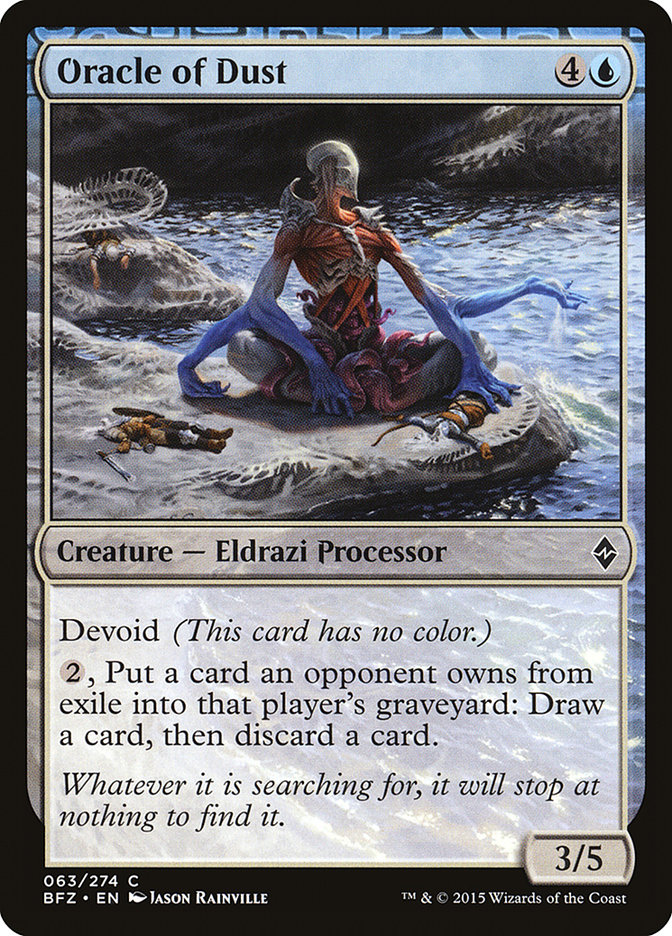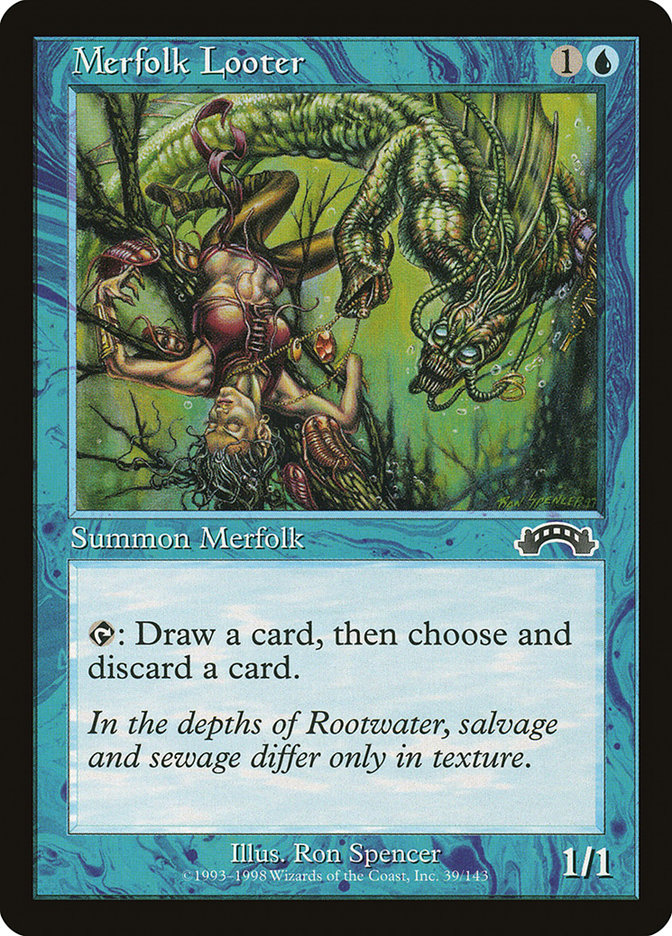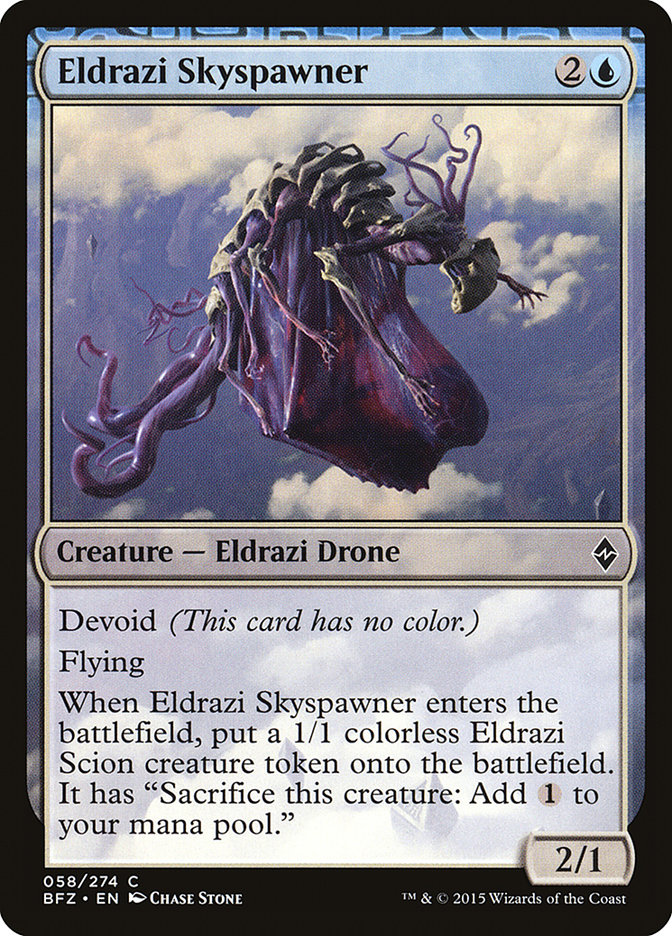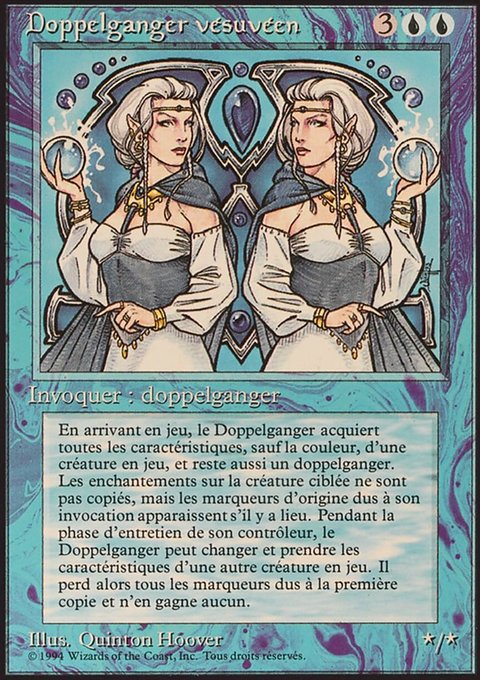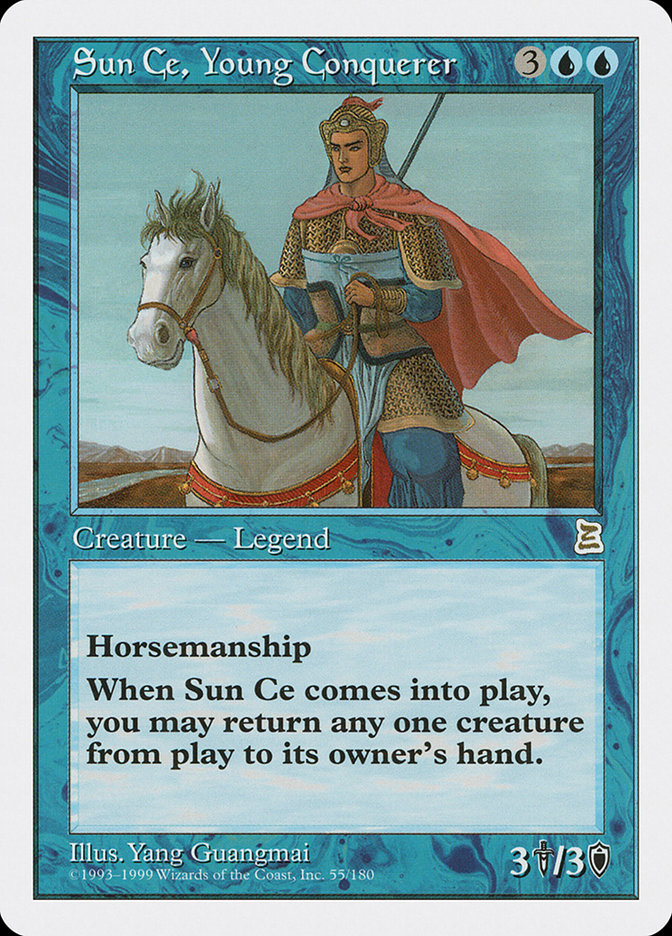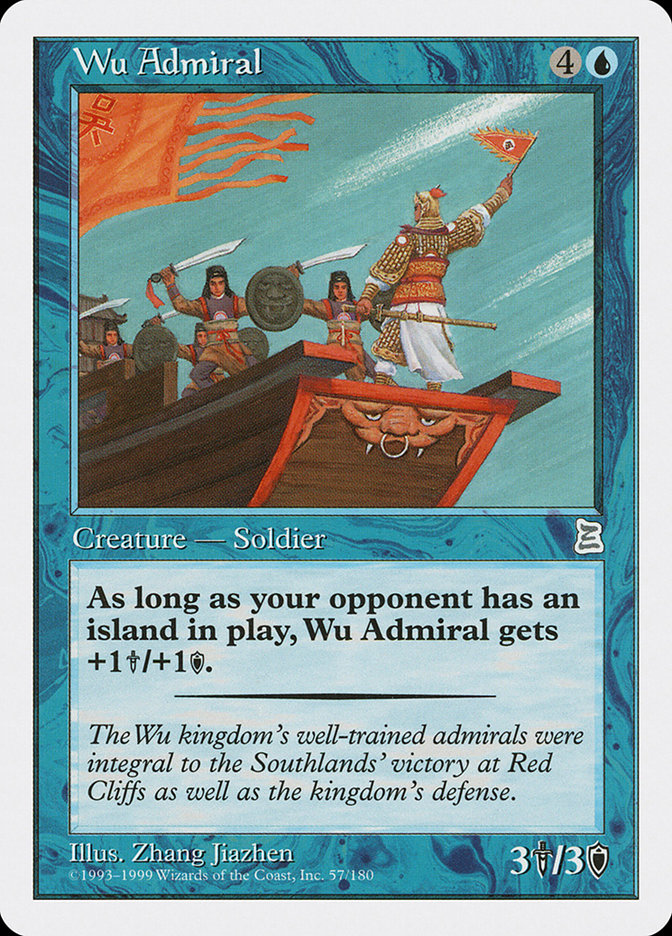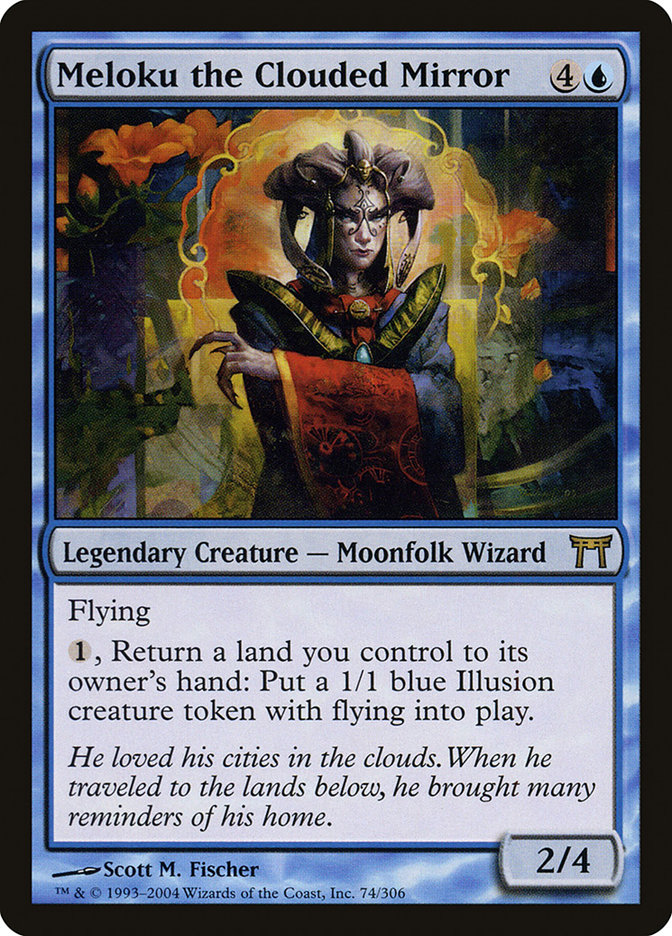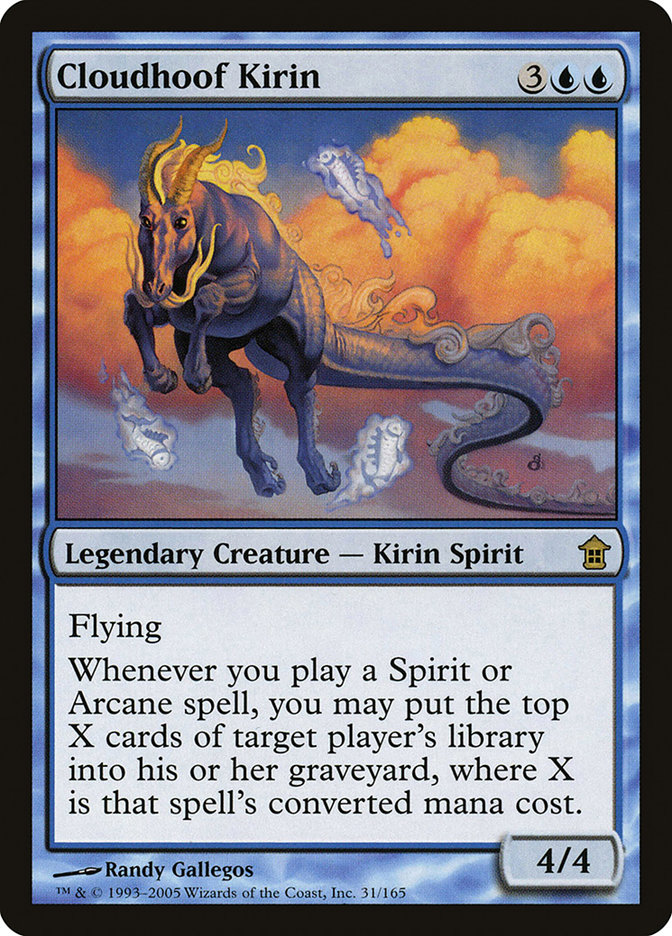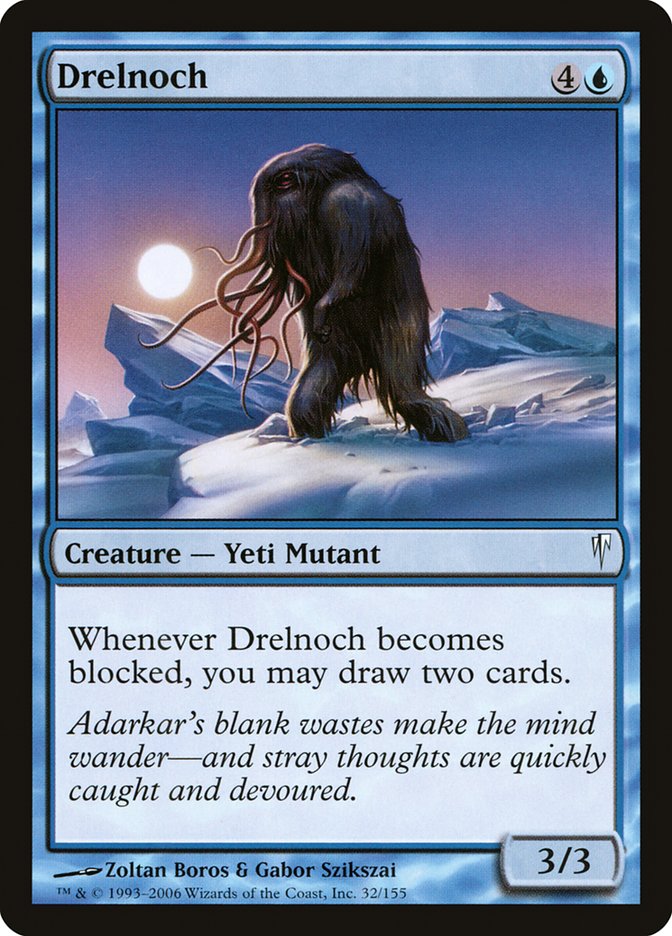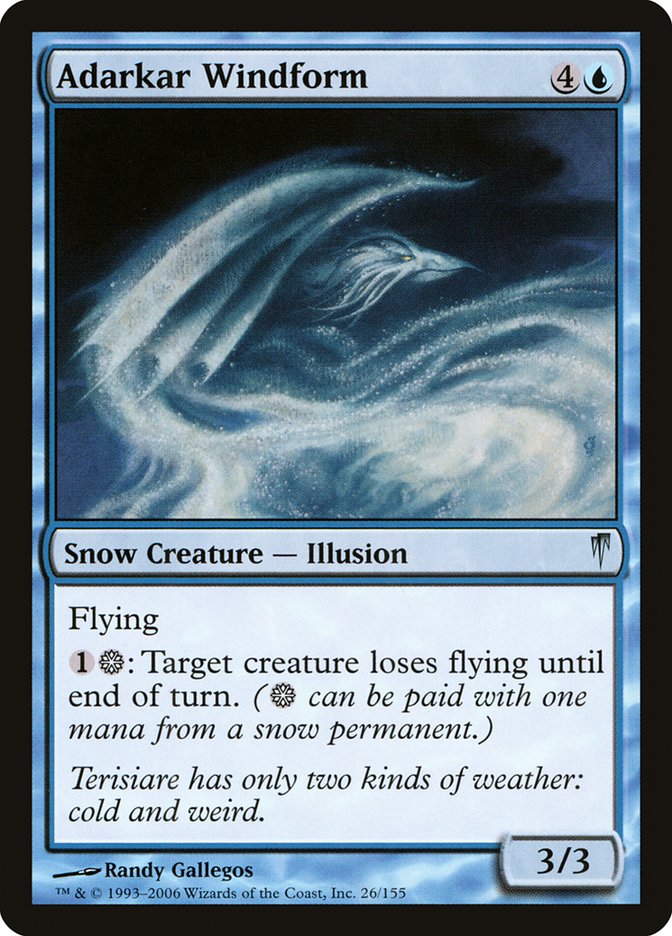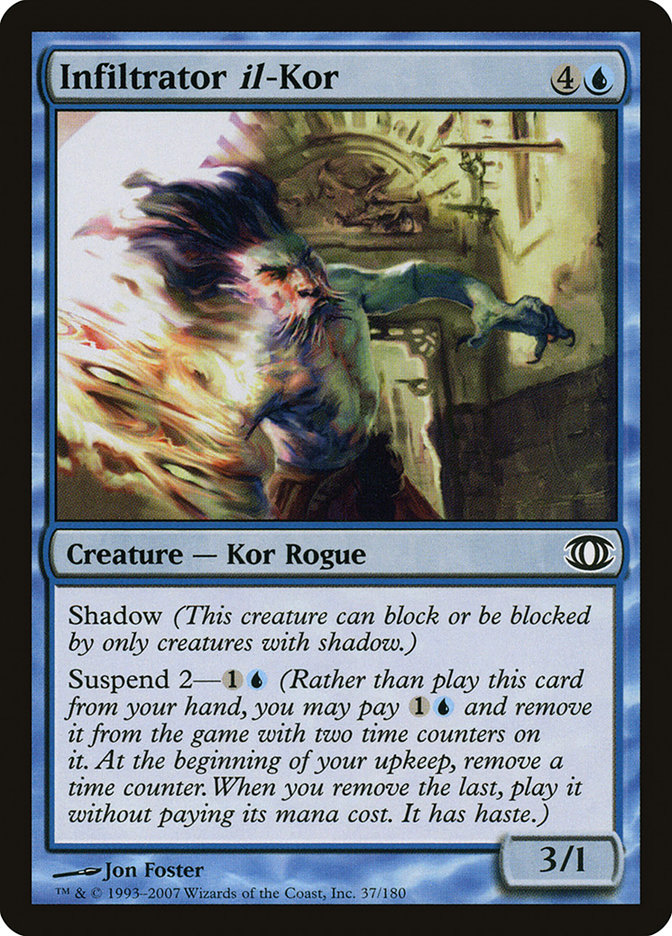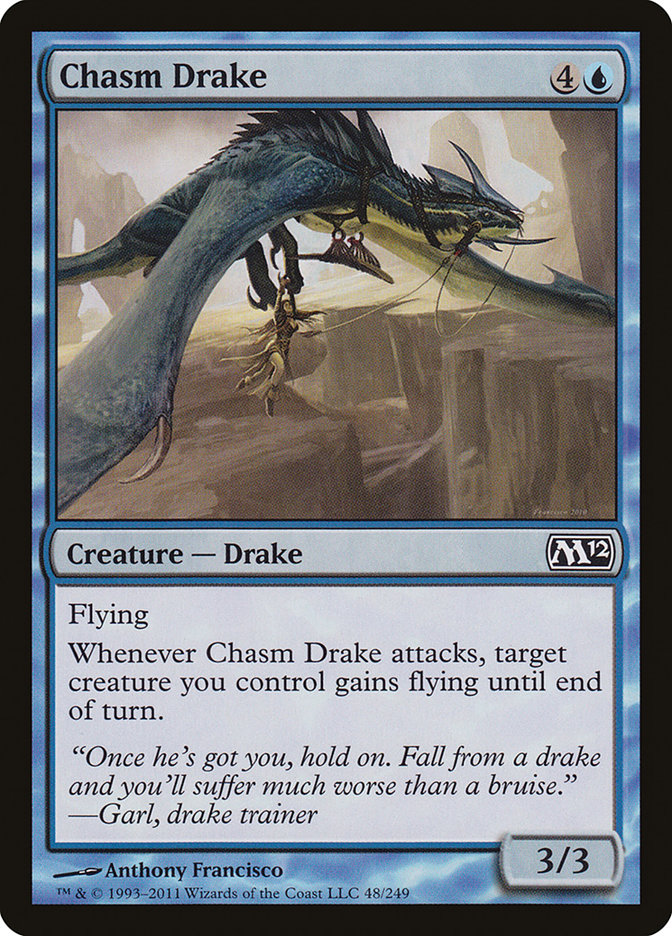Oracle of Dust MTG Card
| Mana cost | |
| Converted mana cost | 5 |
| Rarity | Common |
| Type | Creature — Eldrazi Processor |
| Abilities | Devoid |
| Released | 2015-10-02 |
| Set symbol | |
| Set name | Battle for Zendikar |
| Set code | BFZ |
| Power | 3 |
| Toughness | 5 |
| Number | 63 |
| Frame | 2015 |
| Layout | Normal |
| Border | Black |
| Illustred by | Jason Rainville |
Text of card
Devoid (This card has no color.), Put a card an opponent owns from exile into that player's graveyard: Draw a card, then discard a card.
Whatever it is searching for, it will stop at nothing to find it.
Cards like Oracle of Dust
Oracle of Dust plays a unique role within the Magic: The Gathering universe, standing as a creature that can provide a card advantage. It finds itself often compared to other similar creatures like Merfolk Looter, which is also capable of filtering cards from a player’s hand. Both offer the ability to sift through the deck, though Oracle of Dust requires an exile from the graveyard to activate its loot ability, whereas Merfolk Looter does not.
Eldrazi Skyspawner presents another interesting counterpart. While it doesn’t filter cards, it shares the same converted mana cost with Oracle of Dust and provides an immediate board presence by creating a token upon entering the battlefield. This token can be crucial in terms of mana ramp or defense, setting it apart from the delayed gratification of filtered draws.
Considering the unique aspects of these creatures, Oracle of Dust holds its own by enabling the process of Delve and Eldrazi processors, giving it a slot in decks that manipulate the exile zone. The utility it provides in specific archetypes ensures that it remains a viable option in Magic: The Gathering deck construction that emphasizes graveyard and exile strategies.
Cards similar to Oracle of Dust by color, type and mana cost
Card Pros
Card Advantage: The Oracle of Dust provides a structured option for cycling through your deck. By using its ability to process a card from exile, you get the added benefit of drawing another card, thereby increasing your options and reinforcing your hand each turn.
Resource Acceleration: This creature can help in accelerating your game plan. Specifically, it synergizes with decks that focus on exiling cards, making it a powerful tool for leveraging those exiled resources and converting them into potential card draw, which can lead to a smooth flow of resources throughout the match.
Instant Speed: Though the Oracle of Dust itself is not an instant, its activated ability can be used at instant speed. This means you can end your opponent’s turn by processing an exiled card, drawing you a card at a time that could disrupt their strategies and potentially deny information about your new hand until your turn begins.
Card Cons
Discard Requirement: Oracle of Dust necessitates discarding another card to activate its ability. For players who might already be struggling to keep a full hand, this demand can exacerbate resource scarcity and lead to a weakening of their overall strategy.
Specific Mana Cost: This creature’s casting and ability costs require colorless mana, which dictates that your mana base must be tailored to produce this type. Not all decks can accommodate such a requirement, potentially reducing the card’s versatility across various deck archetypes.
Comparatively High Mana Cost: With a casting cost of five mana, Oracle of Dust’s initial investment is high when compared to other creatures and spells with similar or even more impactful abilities. In fast-paced games, its cost effectiveness comes into question, especially when you need to maintain momentum against your opponents.
Reasons to Include Oracle of Dust in Your Collection
Versatility: Oracle of Dust is a flexible card suitable for decks that exploit the graveyard. Its ability to process exiled cards provides utility in formats where exile strategies are prevalent.
Combo Potential: This card pairs well with strategies that exile cards often. By converting those exiled cards into a consistent draw engine, it opens up avenues for combo decks that thrive on card advantage.
Meta-Relevance: In metagames where cards like Ingest or processors are common, Oracle of Dust becomes a valuable asset. It helps maintain card flow while disrupting your opponent’s plans, making it a smart addition for a reactive or control-focused collection.
How to beat
Oracle of Dust is an intriguing creature card that can present players with unique challenges. This colorless creature card from Magic: The Gathering’s Battle for Zendikar offers utility in the form of converting exiled cards into card draws. When vying against Oracle of Dust, it’s essential to understand its role in enabling its owner’s strategy, often in decks that rely on processing exiled cards to gain advantage.
One effective method to overcome Oracle of Dust is to limit the number of cards available for it to process. This can be achieved by reducing the number of cards your strategy exiles. You might also consider employing graveyard hate cards that can remove appropriate targets from the game entirely, nullifying Oracle of Dust’s ability. Moreover, since Oracle of Dust relies on its controller exiling cards, cards that disrupt the exile zone or replace the effect with something less beneficial can be quite effective here. Additionally, quick removal spells ensure that the creature doesn’t stay on the battlefield long enough to impact the game significantly.
In summary, dealing with Oracle of Dust involves a tactical approach to minimize the exile zone interactions and swiftly removing the creature before it can become a substantial value engine for your opponent.
Where to buy
If you're looking to purchase Oracle of Dust MTG card by a specific set like Battle for Zendikar, there are several reliable options to consider. One of the primary sources is your local game store, where you can often find booster packs, individual cards, and preconstructed decks from current and some past sets. They often offer the added benefit of a community where you can trade with other players.
For a broader inventory, particularly of older sets, online marketplaces like TCGPlayer, Card Kingdom and Card Market offer extensive selections and allow you to search for cards from specific sets. Larger e-commerce platforms like eBay and Amazon also have listings from various sellers, which can be a good place to look for sealed product and rare finds.
Additionally, Magic’s official site often has a store locator and retailer lists for finding Wizards of the Coast licensed products. Remember to check for authenticity and the condition of the cards when purchasing, especially from individual sellers on larger marketplaces.
Below is a list of some store websites where you can buy the Oracle of Dust and other MTG cards:
 BUY NOW
BUY NOW BurnMana is an official partner of TCGPlayer
- eBay
- Card Kingdom
- Card Market
- Star City Games
- CoolStuffInc
- MTG Mint Card
- Hareruya
- Troll and Toad
- ABU Games
- Card Hoarder Magic Online
- MTGO Traders Magic Online
See MTG Products
Legalities
Magic the Gathering formats where Oracle of Dust has restrictions
| Format | Legality |
|---|---|
| Commander | Legal |
| Legacy | Legal |
| Paupercommander | Legal |
| Modern | Legal |
| Oathbreaker | Legal |
| Pauper | Legal |
| Vintage | Legal |
| Duel | Legal |
| Pioneer | Legal |
| Penny | Legal |
Rules and information
The reference guide for Magic: The Gathering Oracle of Dust card rulings provides official rulings, any errata issued, as well as a record of all the functional modifications that have occurred.
| Date | Text |
|---|---|
| 2015-08-25 | A card with devoid is just colorless. It’s not colorless and the colors of mana in its mana cost. |
| 2015-08-25 | Cards with devoid use frames that are variations of the transparent frame traditionally used for Eldrazi. The top part of the card features some color over a background based on the texture of the hedrons that once imprisoned the Eldrazi. This coloration is intended to aid deckbuilding and game play. |
| 2015-08-25 | Devoid works in all zones, not just on the battlefield. |
| 2015-08-25 | Face-down cards in exile are grouped using two criteria: what caused them to be exiled face down and when they were exiled face down. If you want to put a face-down card in exile into its owner’s graveyard, you must first choose one of these groups and then choose a card from within that group at random. For example, say an artifact causes your opponent to exile their hand of three cards face down. Then on a later turn, that artifact causes your opponent to exile another two cards face down. If you use Wasteland Strangler to put one of those cards into their graveyard, you would pick the first or second pile and put a card chosen at random from that pile into the graveyard. |
| 2015-08-25 | If a card loses devoid, it will still be colorless. This is because effects that change an object’s color (like the one created by devoid) are considered before the object loses devoid. |
| 2015-08-25 | If a replacement effect will cause cards that would be put into a graveyard from anywhere to be exiled instead (such as the one created by Anafenza, the Foremost), you can still put an exiled card into its opponent’s graveyard. The card becomes a new object and remains in exile. In this situation, you can’t use a single exiled card if required to put more than one exiled card into the graveyard. Conversely, you could use the same card in this situation if two separate spells or abilities each required you to put a single exiled card into its owner’s graveyard. |
| 2015-08-25 | If a spell or ability requires that you put more than one exiled card into the graveyard, you may choose cards owned by different opponents. Each card chosen will be put into its owner’s graveyard. |
| 2015-08-25 | Other cards and abilities can give a card with devoid color. If that happens, it’s just the new color, not that color and colorless. |
| 2015-08-25 | You can’t look at face-down cards in exile unless an effect allows you to. |
